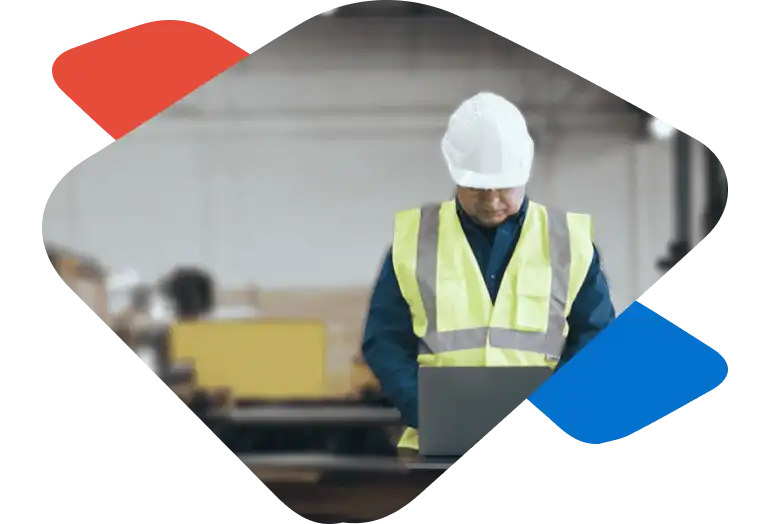April 3, 2024 5 min read

Closing the Manufacturing Skills Gap: Essential Strategies
Industry:
Solution:

Addressing the manufacturing skills gap has become a pressing concern as the labor market becomes more competitive and more experienced workers approach retirement. Addressing this gap requires proactive measures and innovative solutions. Let’s explore some actionable strategies to mitigate this issue and foster a skilled workforce within your manufacturing organization.
Understanding the Manufacturing Skills Gap
The roots of the manufacturing skills gap are multifaceted. While the retirement of the Baby Boomer generation and the evolution of technology in the industry have long been cited as contributing factors, recent upheavals in the labor market have only worsened the situation.
Employees are missing both hard and soft skills. Younger generations of employees especially have gaps in their education, requiring more training in technical skills and soft skills like communication, leadership, and critical thinking.
And it’s not just a need to close skills gaps of the existing workforce. Manufacturing companies can’t find skilled labor to fill open positions either.
Currently, it’s estimated that there are 10 million vacant manufacturing jobs globally. By 2030, it’s estimated that 2.1 million manufacturing jobs will be unfilled in the U.S. alone.
Identify skills gaps faster with Vector Solutions’ Competency Assessment
Explore how you can conduct pre-assessments for job applicants, improve onboarding, identify skills gaps, and more.
Learn More
Reframing Perceptions of Manufacturing Careers
One of the prominent factors contributing to a more limited pool of talent in manufacturing is how the public perceives the industry. Deloitte research has found that although 80% of Americans think manufacturing is a vital industry for our economy, less than 5 in 10 “believe manufacturing jobs are interesting, rewarding, clean, safe, stable, and secure.”
Combating the negative stigma around manufacturing jobs is crucial.
Because the reality is, a career in manufacturing is incredibly worthwhile. This industry is characterized by technological sophistication and innovation, offering intellectually stimulating and rewarding career paths.
Dismissing these outdated stereotypes through proactive communication and outreach can help attract new talent to the industry.
Promoting Diversity, Equity & Inclusion in Manufacturing
Like many industries, a lack of gender and racial diversity is hurting this industry. There is a shortage of women in manufacturing, especially in higher positions, and 78.7% of the workforce is white.
Barriers to entry and limited growth potential can turn away highly qualified candidates and hurt the industry’s reputation overall.
Creating an inclusive workplace culture is not only morally imperative but also essential for attracting and retaining top talent. Emphasizing diversity and equity initiatives sends a powerful message of organizational values while fostering innovation and productivity.
Strategic Approaches to Closing the Manufacturing Skills Gap
To effectively bridge the manufacturing skills gap, organizations must adopt a multifaceted approach:
- Develop a Skills Map: A comprehensive assessment of current and future skill requirements is essential for targeted training and development initiatives.
- Collaborate with Educational Institutions: Forge partnerships with local community colleges and technical schools to align training programs with industry needs.
- Establish Training Academies: Creating specialized training programs, accessible to both employees and external candidates, can cultivate a pipeline of skilled workers.
- Implement Robust Learning & Development Programs: Investing in structured training initiatives, including online courses and mentorship programs, enhances skill acquisition and retention.
- Distinguish Between Training and Process Issues: Conduct thorough analyses to differentiate between skill gaps that can be addressed through training and those stemming from systemic process inefficiencies.

Fostering Continuous Learning and Growth
Empowering employees to acquire and apply new skills is central to bridging the manufacturing skills gap:
- Facilitate Knowledge Transfer: Encourage peer-to-peer learning and mentorship programs to facilitate skill acquisition and knowledge dissemination.
- Prioritize Onboarding: Thoughtful onboarding processes lay the foundation for successful skill development and integration within the organization.
- Offer Clear Career Development Paths: Clearly defined career trajectories and training plans demonstrate commitment to employee growth and retention.
Harnessing Technology for Training Solutions
Partnering with an eLearning provider can be a great way to close skills gaps more quickly and train your workforce at scale.
Transforming into a learning organization requires a holistic approach, encompassing leadership commitment, supportive environments, and structured learning practices. By fostering a culture of continuous learning, organizations can adapt to industry shifts and thrive in a rapidly evolving landscape.
Online training platforms and e-learning courses offer scalable and customizable solutions to address the evolving needs of the workforce. Leveraging these tools, coupled with a focus on autonomy, mastery, and purpose, can drive engagement and skill acquisition.
Online Industrial and Manufacturing Training Courses
Reduce downtime and keeps production running smoothly with engaging, interactive online courses for your industrial manufacturing employees
View Courses
Partnering with Vector Solutions
Vector Solutions offers tailored solutions to empower organizations in closing the manufacturing skills gap. From comprehensive e-learning libraries to industry-specific training programs, Vector Solutions equips organizations with the tools and resources needed to build a skilled workforce.
Our manufacturing training elearning library includes courses on:
- Facilities Maintenance
- Continuous Improvement
- Core Industrial Skills
- Electrical Maintenance
- Electronics
- Health, Safety & Environment (HSE)
- Instrumentation & Control
- IT & Cybersecurity
- Lab Operations
- Mechanical Maintenance
- Power Generation
- Process Operations
- Professional Development
- Project Management
- Transportation Safety
Contact us to see how easy it is to begin using our online training tools to help you close your manufacturing skills gap. We’d be happy to set up a demo, show you some previews, and get you launched on your learning adventure soon.








